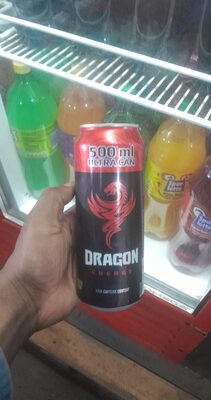
Barcode: 6009694633116
DRAGON
HALAL
📝 Reason: Based on ingredients analysis, this product does not contain any clearly Haram substances or Haram E-codes. However, ‘Flavoring’ and ‘Vitamin B12’ are marked as Doubtful due to possible non-Halal origins or alcohol/animal-derived processing and there is no explicit Halal certification. According to Islamic law (Quran 5:3), any ingredient of doubtful origin or unclear process must be treated cautiously. Reputable Halal organizations (IFANCA, halalexplorer.com) advise products with doubtful sources, especially for flavorings and vitamins, to be avoided until proven Halal.
🏷️ Category: Beverages, Energy Drinks
📄 Certificates: N, /, A, Vegetarisch, Vegan
Ingredients:
Details
Understanding the Halal Status of DRAGON Drink
The DRAGON drink has garnered attention for its energizing properties and unique flavor. As a mindful consumer, you may be wondering: Is this product Halal? Let’s delve into the ingredients and relevant certifications to clarify the situation.
Halal Status Overview
According to our analysis, DRAGON drink is classified as Halal based on its ingredients. However, there are some components that warrant caution due to their doubtful origins, particularly ‘Flavoring’ and ‘Vitamin B12’. As a rule of thumb in Islam (Quran 5:3), any ingredient of uncertain origin should be approached carefully.
Ingredient Breakdown
Below, we explore the ingredients of the DRAGON drink, focusing on E-numbers and their Halal status:
- Carbonated water: Pure water infused with carbon dioxide and considered Halal. [Source]
- Sugar: Derived from natural sources. Generally Halal unless it has been processed with Haram substances. [Source]
- Citric acid: Plant-based and commonly sourced from corn or sugar beets, thus Halal. [Source]
- Sodium citrate: A salt of citric acid, it is also Halal. [Source]
- Flavoring: This term is generic and can derive from animal or alcohol sources. Lack of certification makes it doubtful. [Source]
- Aspartame: A synthetic non-nutritive sweetener, generally Halal. [Source]
- Sodium cyclamate: A synthetic sweetener, classified as Halal. [Source]
- Sucralose: This chlorinated sugar derivative is Halal as it is synthetically produced. [Source]
- Sodium benzoate: A synthetic preservative with no reported Haram origins. [Source]
- Caffeine: Derived from plants and does not undergo fermentation, making it Halal. [Source]
- Inositol: A carbohydrate derived from sugar beets or corn, it is Halal. [Source]
- Caramel E150d: This plant-based coloring is Halal and approved. [Source]
- D glucuronolactone: Another carbohydrate compound with plant origins, thus Halal. [Source]
- Niacin: Vitamin B3 is typically Halal as it can be synthetically made or derived from plants. [Source]
- Calcium pantothenate: A synthetic vitamin B5 generally considered Halal. [Source]
- Vitamin B12: Most commercial B12 is Halal as it is sourced from bacterial fermentation, but it could also derive from animal sources. There is no certification available. [Source]
- Vitamin B6: Typically produced synthetically or from plants; generally Halal. [Source]
- Colorant (quinoline yellow): This synthetic food color is not identified as Haram or doubtful and is considered Halal. [Source]
Conclusion
Overall, while most of the DRAGON drink’s ingredients appear to be Halal, the dubious nature of ‘Flavoring’ and ‘Vitamin B12’ necessitates caution. For devout consumers, it is advisable to consult with trusted Halal organizations like IFANCA or to avoid products that contain ingredients with unclear Halal status. In a world where many energy drinks may contain questionable substances, being informed can help you make the right choices for your lifestyle.
